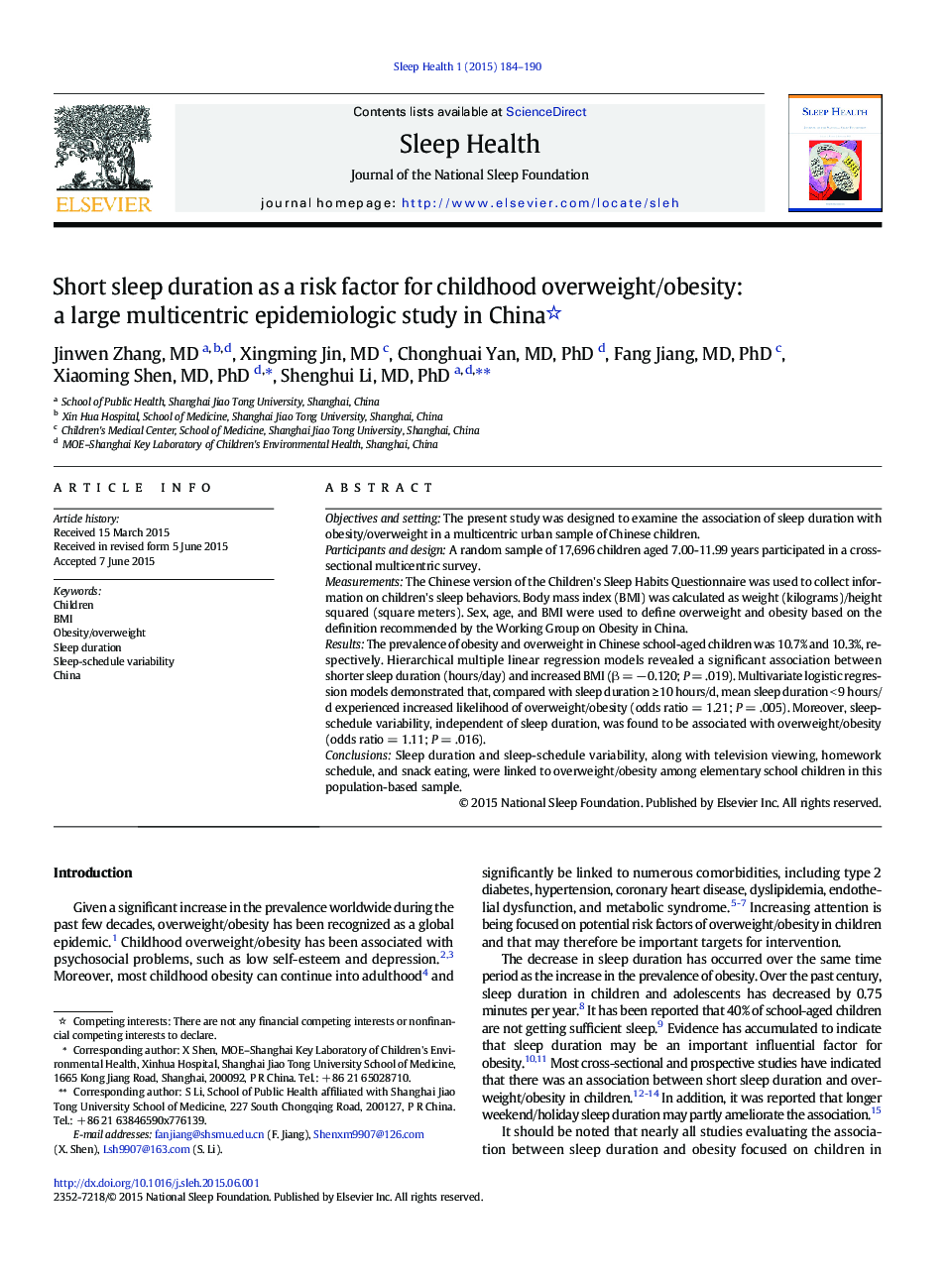| Article ID | Journal | Published Year | Pages | File Type |
|---|---|---|---|---|
| 916268 | Sleep Health | 2015 | 7 Pages |
Objectives and settingThe present study was designed to examine the association of sleep duration with obesity/overweight in a multicentric urban sample of Chinese children.Participants and designA random sample of 17,696 children aged 7.00-11.99 years participated in a cross-sectional multicentric survey.MeasurementsThe Chinese version of the Children's Sleep Habits Questionnaire was used to collect information on children's sleep behaviors. Body mass index (BMI) was calculated as weight (kilograms)/height squared (square meters). Sex, age, and BMI were used to define overweight and obesity based on the definition recommended by the Working Group on Obesity in China.ResultsThe prevalence of obesity and overweight in Chinese school-aged children was 10.7% and 10.3%, respectively. Hierarchical multiple linear regression models revealed a significant association between shorter sleep duration (hours/day) and increased BMI (β = − 0.120; P = .019). Multivariate logistic regression models demonstrated that, compared with sleep duration ≥ 10 hours/d, mean sleep duration < 9 hours/d experienced increased likelihood of overweight/obesity (odds ratio = 1.21; P = .005). Moreover, sleep-schedule variability, independent of sleep duration, was found to be associated with overweight/obesity (odds ratio = 1.11; P = .016).ConclusionsSleep duration and sleep-schedule variability, along with television viewing, homework schedule, and snack eating, were linked to overweight/obesity among elementary school children in this population-based sample.
